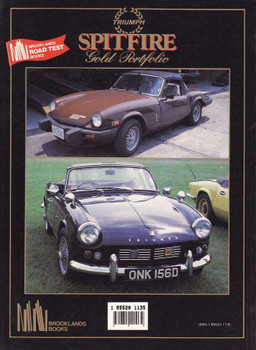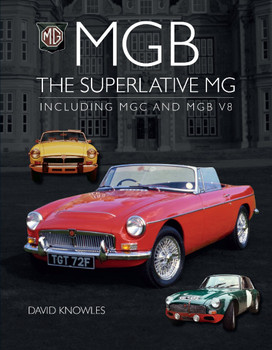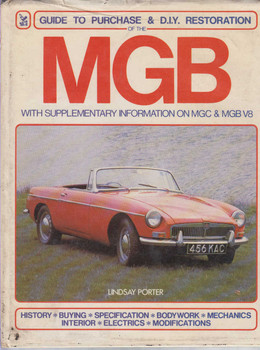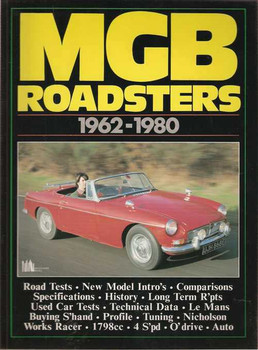Description
Compiled by R.M.Clarke, Softbound, 180 Pages, A-MGB62GP, ISBN: 9781855200456
No-one ever seems to tire of the MGB and its relatives — least of all, us here at Brooklands Books. So much of interest has been published that simply could not be fitted into our earlier volume entitled MGB Roadsters, 1962-1980 that we thought enthusiasts would welcome a second and larger volume, this time encompassing not only the Roadster but also the GT and the models with six- and eight-cylinder engines. None of the articles reproduced here appears in the earlier volume, which remains available.
Our Gold Portfolios could not exist without the generous support of those who own the copyright to the original material they reproduce. We are pleased to express our thanks for the articles in this book to the managements of Australian Motor Sports, Autocar, Auto International, Autosport, Auto Topics, Car and Car Conversions, Car and Driver, Cars Illustrated, Classic and Sportscar, Modern Motor, Motor, Motor Magazine International, Motor Sport, Motor Trend, Popular Imported Cars, Road and Track, Road Test, Safety Fast, Sports Car, Sports Car Graphic, Sports Car World, Sports and GT Cars, Thoroughbred and Classic Cars, Track and Traffic and World Car Guide. Our thanks also go to Richard Monk and to the MG Owners Club who have encouraged us in our task and came to our aid by supplying the splendid selection of photographs used on our covers.
James Taylor the motoring writer and historian has generously agreed to set the scene with his introductory remarkers below.
R.M.Clarke
The MGB has been described as Britain's most popular sports car, and it certainly merits that title today, twenty-eight years after it first appeared in 1962. Perhaps it always was a little heavy, but it had the great merit of being practical as well as looking smart and streamlined. As far as performance was concerned, perhaps it was sporting rather than fast, but the overall result was a delightful combination of qualities which have lost none of their charm in an age when many mundane small saloons will out-accelerate and out-handle an MGB.
In the mid-1960s, MG's Competitions Department made sure that the car proved its worth in several long-distance sporting events, and many of the special tuning parts developed for those events were then made available to private owners who wanted to use their car competitively. Meanwhile, the Roadster had been supplemented in October 1965 by an attractive fixed-head coupe known as the GT, which many thought was rather better suited to the English climate than the original open car! And, for those who relished the car's grand touring ability rather than its performance, an automatic transmission option was introduced in October 1967.
At the same time, the MGC was introduced. In the BMC corporate scheme, this reenginged MGB was supposed to replace the Austin-Healey 3000. However, the model was only a qualified success, as the greater weight of the six-cylinder engine detracted from the light handling associated with the MGB, and it was simply not as responsive, despite the power increase. Dropped after only two years, the MGC was not replaced until 1973, when Abingdon slotted. a Rover V8 engine into the engine bay of an MGB to produce the MGB GT V8, which many enthusiasts now see as the very best of the MGB family. Paradoxically, however, the V8 sold slowly because of British Leyland's pricing policy and was withdrawn after only three years.
Sadly, there were no factory-produced Roadsters with the V8 engine, as there were fears that American safety legislation would outlaw open cars in the mid-1970s. It was American legislation, too, which brought about the deletion of chrome bumpers and their replacement by plastic ones in 1974; and it was American legislation which dictated a raised ride height which did nothing for the MGB's handling. Nevertheless, the B soldiered on until 1980, when the costs of keeping it competitive in the important and increasingly tightly regulated US market made continued production economically unsound.
Yet even that was not the end of the B. Nine years later, demand was such that Heritage, the historical arm of what had once been BMC and British Leyland, resuscitated the original body tooling for the cars and began to remanufacture complete bodysheels. What greater testimony can there be to a classic car's popularity?
James Taylor




















